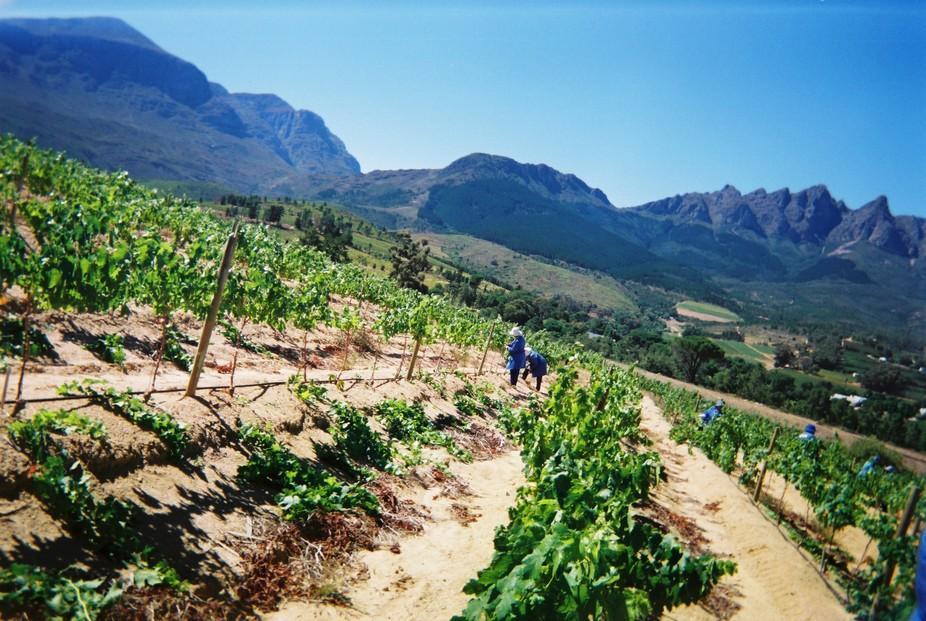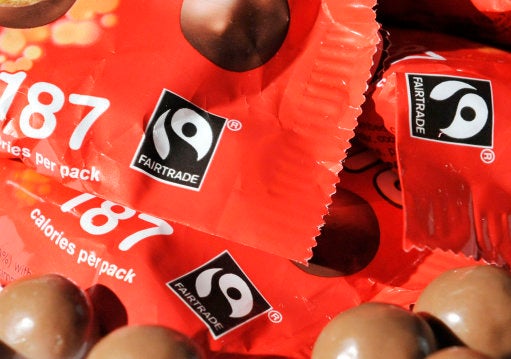Why small producers have big concerns about multinationals joining Fairtrade
Fairtrade was set up to support small producers - but some feel it is now missing the mark

Fairtrade products and promotions are covered with photos of smiling producers, but behind the marketing gloss not everyone is so happy.
Becoming a Fairtrade producer – and maintaining required standards – can be complex and ambiguous, with continual market and organisational challenges. And, since Fairtrade started to allow major multinational corporations – including Nestlé and Starbucks – to join in recent years, producers are beginning to question the effectiveness of the scheme.
For the past two years, I have been working with Fairtrade wine producer communities in Argentina, Chile and South Africa. While I found that they recognise the benefits of being associated with Fairtrade, there can be downsides consumers do not know about.
Set up more than 20 years ago, Fairtrade International positions itself as a connector between disadvantaged producers in developing countries and consumers, building and supporting strong, direct and long-term relationships.
Nearly 80 per cent of UK consumers recognise the Fairtrade mark. With many big supermarkets now involved, sales of Fairtrade products such as bananas, coffee and sugar are growing every year.
Across the world, 1.65 million farmers and workers – totalling 1,226 “producer organisations” – are Fairtrade certified and display the Fairtrade mark on products. For small producers and workers, Fairtrade offers huge opportunities far beyond just selling produce.
Farmworkers’ communities in the Western Cape, South Africa, for example, have also benefited from improved education, physical and mental health care, community interaction and housing. Some workers also talk of better relations with white owner-managers, though for others the legacies of apartheid have proved more persistent. But, from my findings, it seems that the longer a farm has been Fairtrade the more likely it is that traditional worker-owner relations are challenged.
High standards
Understandably, Fairtrade has high standards to maintain. One of the scheme's key benefits is that it helps producers understand exactly what consumers want.
For small grape producers in Argentina and Chile, Fairtrade has been a lifeline in a market dominated by multinational corporations. “If we lost Fairtrade, I would die as a producer, it is not profitable,” one Chilean producer tells me. When his association was first approached in 1997 by the European Fairtrade organisation, he couldn't believe his luck in terms of the prices it was offered. He adds: “In those years we produced 20,000 kilos per hectare. Then we said: ‘If the gringos pay so well, we’ll continue producing at those levels.’

“It turned out in 2001 that our wine was bad. They told us: ‘If you improve, we will continue buying. If not, no.’ From there, we transformed completely.” Now the producer's association grows fewer, higher-quality grapes in more environmentally friendly ways, resulting in better wine.
Level playing field?
The benefits of Fairtrade, however, do not always come easily. In Argentina and Chile, small producers are struggling with large corporations joining the Fairtrade system. Though these brands buy Fairtrade ingredients – a win for farmers – producers are now competing for certified shelf space with multinationals. Another small Chilean producer tells me: “Every day there is more competition. Big companies are certified – in the case of wine in Chile – like Concha y Toro, like Cono Sur, like Miguel Torres. They have everything cheaper because they have wineries, bottling plants and specialised people selling. It is very difficult to compete and the doors are closing.”
Tensions are rising and producers are questioning who Fairtrade should support. It was established as a champion of small producers but as the market has grown it has become more attractive to big companies, and Fairtrade is letting them join. The manager of another Chilean producer’s association says: “Do you think that Concha y Toro deserves to be so privileged in this market? No. That is not why Fairtrade was invented.”
The certification of big companies is having serious knock-on effects that could undo any benefits to small producers. One boutique winery in Argentina is no longer able to support the Fairtrade association of small producers it helped to establish because it cannot compete with multinationals’ low prices. More generally, South America’s small producers are overwhelmed by the paperwork involved and struggle with the business expertise and language skills needed.
South African farmer-owners are also frustrated by the minefield of ever-changing regulations. One questioned Fairtrade regulators’ experience in farming and business, saying: “Whatever [regulations] they think would be nice to put in, they put in not realising what the implications are”.
Partnerships
When told of producers’ concerns, Sarah Singer, Fairtrade Foundation supply-chain manager, said: “Working with big companies and supporting small producers and workers is not mutually exclusive. Fairtrade exists to challenge the inequalities and power imbalances in trade so that farmers and workers from developing countries get a better deal.
“We work in partnership with farmers and workers, they co-own our system and it is they who decide whether to work with bigger companies. They are often keen to do so because this creates more opportunities to sell greater volumes of their produce, at higher prices and the security of longer-term business relationships, which means they can invest in improvements to their farms and their communities.”
For the small farmers of South America who have seen their non-Fairtrade neighbours uprooting vineyards to sell to developers and for workers in South Africa, Argentina and Chile who are experiencing community development, Fairtrade remains a good opportunity. But – despite Fairtrade’s assurances – whether only small producers and workers should be supported and how, or if there is a place for big companies too, requires further discussion and better communication.
Agatha Herman is a lecturer in human geography at Cardiff University. This article was originally published on The Conversation (www.conversation.com)
Join our commenting forum
Join thought-provoking conversations, follow other Independent readers and see their replies
Comments
Bookmark popover
Removed from bookmarks